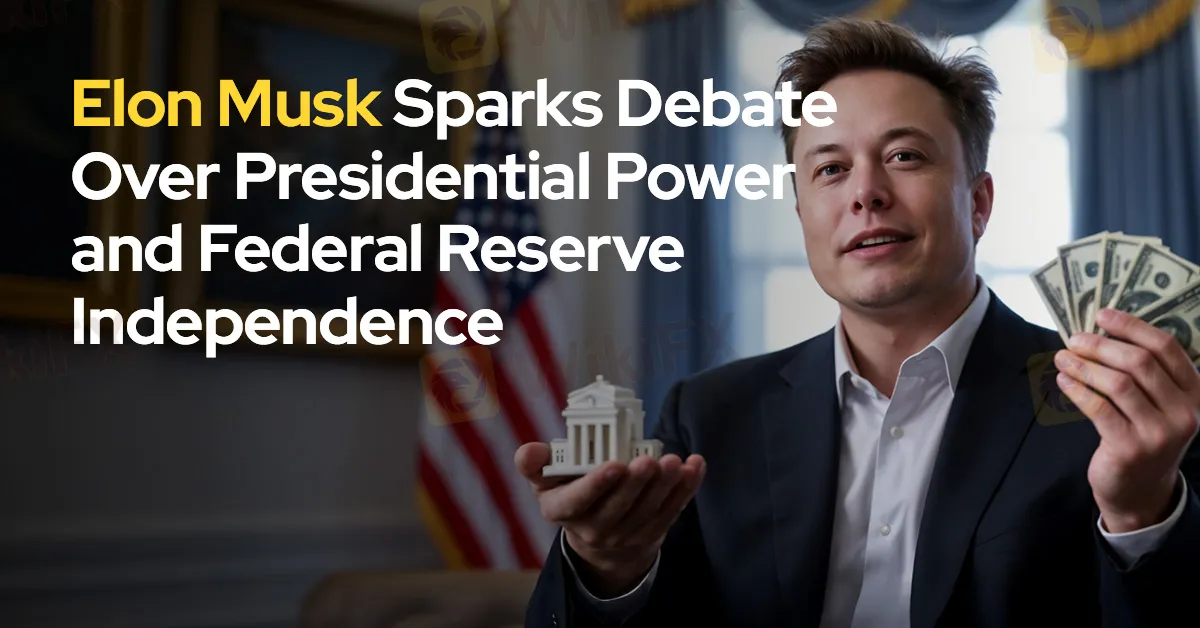Elon Musk Sparks Debate Over Presidential Power and Federal Reserve Independence
abstrak:Elon Musk has voiced his support for the controversial idea that United States presidents should have a role in shaping Federal Reserve policies. This endorsement aligns with recent remarks from President-elect Donald Trump, who has hinted at revisiting the central bank's independence, a long-held tradition in the nation's financial governance.

Elon Musk has voiced his support for the controversial idea that United States presidents should have a role in shaping Federal Reserve policies. This endorsement aligns with recent remarks from President-elect Donald Trump, who has hinted at revisiting the central bank's independence, a long-held tradition in the nation's financial governance.
Musk‘s backing highlights a growing debate surrounding the Federal Reserve’s autonomy. Historically, the Fed has operated independently, making decisions based on economic indicators rather than political influence. This separation has been seen as vital for maintaining long-term economic stability and protecting monetary policy from short-term political agendas. However, Trumps approach suggests a possible shift in this dynamic.
Throughout his 2024 campaign, Trump frequently criticised the Federal Reserve's decision-making process. He reportedly argued that his financial success and business acumen positioned him to make more informed monetary decisions than Federal Reserve Chair Jerome Powell. These comments echo similar criticisms Trump made during his first term in office when he openly disagreed with Powells policies.

Musk‘s endorsement of presidential intervention now signals a potential clash between the incoming administration and the central bank. Critics have raised concerns that allowing such influence could compromise the Fed's ability to function impartially. Nonetheless, Trump’s stance reflects a broader movement questioning whether the Feds current level of independence aligns with modern political and economic realities.
Jerome Powell, the Federal Reserve Chair, has stood firm in his defence of the institutions independence. When asked about his future under a Trump administration, Powell firmly stated he would not step down if requested to do so. His position underscores the importance of shielding the central bank from political interference, a principle that has guided Fed operations for decades.
Adding further intrigue to this unfolding story is Musks recent political involvement through his America PAC. The billionaire organised a controversial $1 million-a-day voter giveaway in the lead-up to the 2024 US presidential election. The initiative, aimed at voters in key battleground states, sparked legal and ethical debates. Critics, including Philadelphia District Attorney Larry Krasner, labelled the campaign a scheme to sway votes in favour of Trump. Krasner sought an injunction to halt the contest, describing it as a “scam” that undermined electoral integrity. However, a Pennsylvania court ruled in favour of Musk, allowing the giveaways to continue in swing states.
Musk's actions and statements suggest his growing influence not only in the business world but also in political discourse. As Trump prepares to take office, the question of the Federal Reserve‘s independence remains central to the ongoing debate about the intersection of politics and economic policy. Whether the administration’s approach will lead to fundamental changes in how the Fed operates remains to be seen, but the stakes for both financial stability and institutional integrity are undeniably high.

Broker ng WikiFX
Exchange Rate

